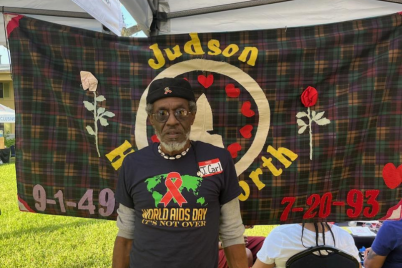ST. PETERSBURG — A researcher from USF St. Petersburg is working to target the stigmas surrounding HIV in Tampa Bay, with the goal of increasing health screenings and diminishing the spread of the disease.
Dr. Kemesha Gabbidon, a post-doctoral fellow at USF St. Petersburg, was awarded a $70,000 Transformative Grant to implement a community program that works with individuals and communities most affected by the epidemic. This program seeks to generate greater awareness about the disease and its treatments, reduce the negative stigma around those who have it and improve the overall health and well-being of populations.
“In the south there is higher HIV stigma, compounded by homophobia and issues of racism. People are less likely to get screened because of this stigma or seek out medical care, leading to the spread of the disease because many people do not know that they carry it,” said Gabbidon.
Despite being home to only 38 percent of the country’s population, southern states experience 52 percent of new HIV diagnoses. In 2017, Florida ranked third in the nation in the number of new HIV cases, according to the Centers for Disease Control and Prevention. And in the state, only Miami has a larger population of those carrying the disease than Tampa Bay.
There are various reasons for why the disease is so prevalent in the south. Issues such as poverty, access to health care, housing stability and food security all play a part. This research grant will be used to examine these and other local community stressors that impact HIV risk.
“Southern states currently carry a higher burden of HIV as compared to the west or across the north,” said Gabbidon. “When we look at populations that are impacted the most, minorities carry the highest burden.”
Gabbidon plans to work in collaboration with the community and take all those factors into account when developing the program.
The program will consist of focus groups with community members and in-depth interviews with those struggling with the disease or impacted by it, such as family members and friends of diagnosed individuals. These sessions will focus on enhancing awareness and information about HIV, reducing stigmatizing behavior that negatively effects chances of treatment and screenings and increasing social contact between community members and those living with HIV, showing the human face of the disease. It will largely target young gay or bisexual men from minority populations.
Interactions during these sessions will help identify the most prevalent types of stigmas and stressors, assess the health and mental health resources available and needed and develop interventions that can best meet the needs of the community.
Those interested in learning more or participating in Gabbidon’s study can contact kgabbido@usf.edu.








